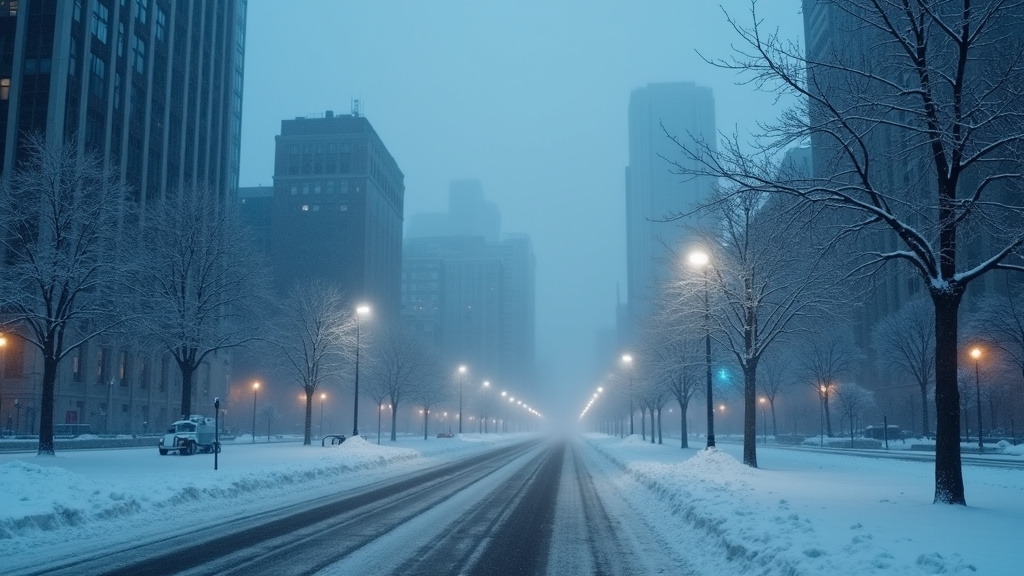WASHINGTON D.C. – President Donald Trump announced Friday, August 22, 2025, that Chicago is slated to be the next major city targeted for federal crime crackdown efforts, drawing immediate criticism from city officials and raising significant constitutional questions. The announcement follows similar federal interventions in Washington, D.C., and signals a potential expansion of the administration’s assertive approach to urban crime, homelessness, and illegal immigration.
Trump, speaking from the Oval Office, declared that Chicago is “a mess” and vowed to “straighten that one out, probably next,” following the ongoing federal actions in the nation’s capital. He asserted that residents in Chicago are “screaming for us to come,” a claim disputed by local leaders who point to recent data indicating significant drops in violent crime.
Trump’s Pattern of Intervention in Chicago
This is not the first time President Trump has targeted Chicago for federal intervention. He has been a vocal critic of the city’s crime rates for over a decade, frequently labeling it a “shooting disaster” and worse than war-torn regions. During his presidency, federal agents were deployed to Chicago in 2020 as part of an initiative to combat rising violent crime amidst the COVID-19 pandemic. That deployment, part of a broader Justice Department effort, was later discontinued.
Trump’s latest pronouncements echo a pattern of singling out cities led by Democratic mayors, often with majority-minority populations, for criticism regarding public safety. He also mentioned New York City as a potential future target for similar federal operations.
Mayor Johnson’s Strong Opposition and Data Counterpoints
Chicago Mayor Brandon Johnson swiftly condemned Trump’s remarks, characterizing the proposal as “uncoordinated, uncalled for, and unsound.” Johnson stated that his office had not received any formal communication from the federal administration regarding potential deployments. He argued that such federal intervention, particularly the deployment of the National Guard, risks “inflam[ing] tensions between residents and law enforcement when we know that trust between police and residents is foundational to building safer communities.”
Mayor Johnson highlighted that Chicago has already seen considerable progress in reducing crime. According to data from the Chicago Police Department, homicides saw a significant decrease of approximately 33% in the first half of 2025 compared to the same period in 2024. Shootings dropped by nearly 39%, and robberies fell by over 30%. Johnson attributed these declines to the city’s investment in community-based violence prevention programs, mental health services, and affordable housing, suggesting that federal military intervention is unnecessary and counterproductive.
Illinois Governor JB Pritzker also voiced opposition, stating that the state would “follow the law and stand up for the sovereignty of our state.” He echoed concerns about the potential for unlawful deployments and emphasized the need for community-focused solutions.
Constitutional Hurdles and Legal Challenges
Legal experts and city officials have raised serious concerns about the legality of President Trump’s proposed actions in cities outside of Washington, D.C. Unlike the District, states maintain their own sovereignty, and the U.S. Constitution’s Tenth Amendment generally prohibits the federal government from commandeering state or municipal officials or intervening in state-level law enforcement matters, unless constitutional rights are being violated.
The Posse Comitatus Act further restricts the use of federal military personnel for domestic law enforcement. While the Insurrection Act offers an exception in cases of rebellion or when states are unable to enforce federal law, legal scholars argue that Chicago does not meet these criteria, and federalizing the National Guard without the governor’s consent would likely face immediate legal challenges.
A Trending Political Strategy
President Trump’s rhetoric and proposed actions are viewed by critics as a political strategy, potentially aimed at rallying his base and distracting from other issues, rather than addressing genuine public safety needs. His administration’s actions in Washington, D.C., which included federalizing the local police force and deploying National Guard troops, have been characterized by some as an “authoritarian power grab.” Critics point to data showing crime rates in D.C. had already declined before the federal intervention.
The debate over federal intervention in local crime represents a significant point of contention, with President Trump advocating for a strong, centralized federal response, while local leaders emphasize community-driven solutions and the potential dangers of federal overreach. As this news unfolds, the effectiveness and legality of such federal crackdowns remain a subject of intense scrutiny and debate, making it a trending topic in current news cycles.
Conclusion
President Trump’s declaration of intent to target Chicago for a federal crime crackdown sets the stage for a potential conflict between federal authority and local governance. While the administration points to crime as the impetus, data from Chicago suggests a city making progress through its own strategies. The legal and constitutional challenges, coupled with strong opposition from state and local leaders, cast significant doubt on the feasibility and appropriateness of the proposed federal intervention. The situation underscores a deepening divide in approaches to public safety, with the outcome for Chicago yet to be determined.














